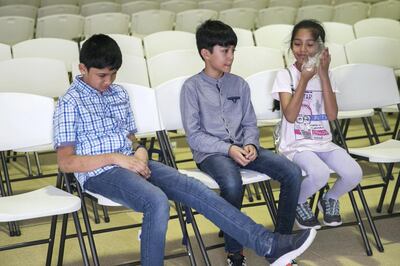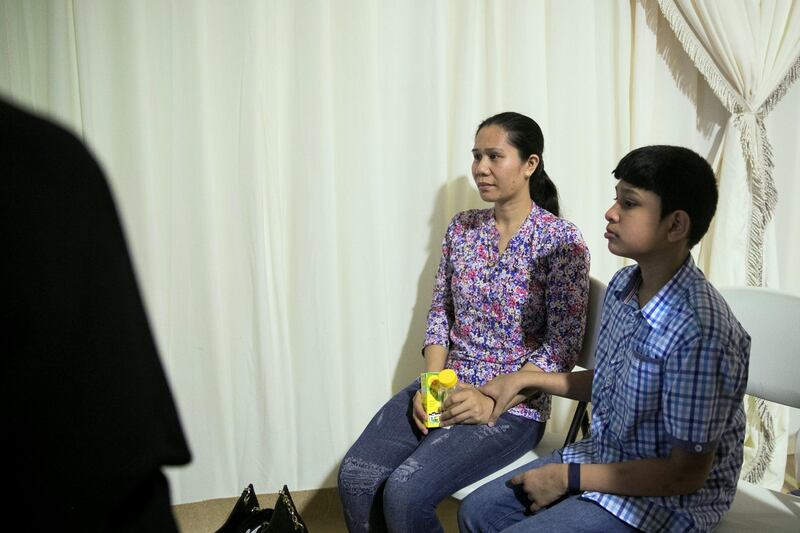A Filipina mother of three, who has been separated from her family back home for 13 years, will finally reunite with her relatives after seeking amnesty at an immigration centre on Wednesday.
Rose Mary arrived in the UAE in 2003 where she and her Pakistani husband started a family together.
While she looked after their children, her husband ran a successful herbal medicine and garment company from Dubai.

But two years ago, the firm fell on hard times and her husband returned to Pakistan to look for work, leaving his family behind.
“My husband had no choice, he had to leave," Mrs Mary said. "There was a lot of trouble; trouble with cheques and trouble with rent.
“I wanted the children to continue to study here because our visas were valid.”
Since her husband returned to Pakistan, Mrs Mary has had to rely on the generosity of friends for financial help. She did not have enough money to return to the Philippines with her family while their visas were still valid.
“But now we have no choice, all of us must leave because our papers have expired and we don’t have the money to pay the fines for overstaying.”
_______________
Read more:
Hundreds turn out as UAE's three-month visa amnesty begins
'Final chance' for UAE residents with expired visas as amnesty approaches
Editorial: Seize this opportunity to sort your visa issues
_______________
On Wednesday, Mrs Mary arrived the immigration centre in Al Aweer, Dubai, with her children in tow. Her eldest son Shahvez, 12, is autistic, while her second son, Shazed, is 10 and her daughter, Shayan, 9.
She plans to head home and then travel to Pakistan to be reunited with her husband.
“The amnesty has saved our life," she said. "Everyone is so happy because otherwise, how could we pay so much money in fines?
“We will get our life back now. It's been so difficult not seeing my parents for 13 years. My children have never seen their grandparents. All I want is to get all the clearance stamps and go home."
Mrs Mary’s case is not unlike that of other workers living in the UAE who have been unable to leave the country after they defaulted on bank loans and debts built up.
Maj Hussain Abbas, a director of the General Directorate of Residency and Foreigners Affairs, said: “This is one case, we expect thousands more.
"There are many scenarios where the husband has left the country. Sometimes the children are with the mother or sometimes with an aunt.
"We always try and help where we can but people first need to obtain no-objection documents from their own consulates before we can help them leave.”







